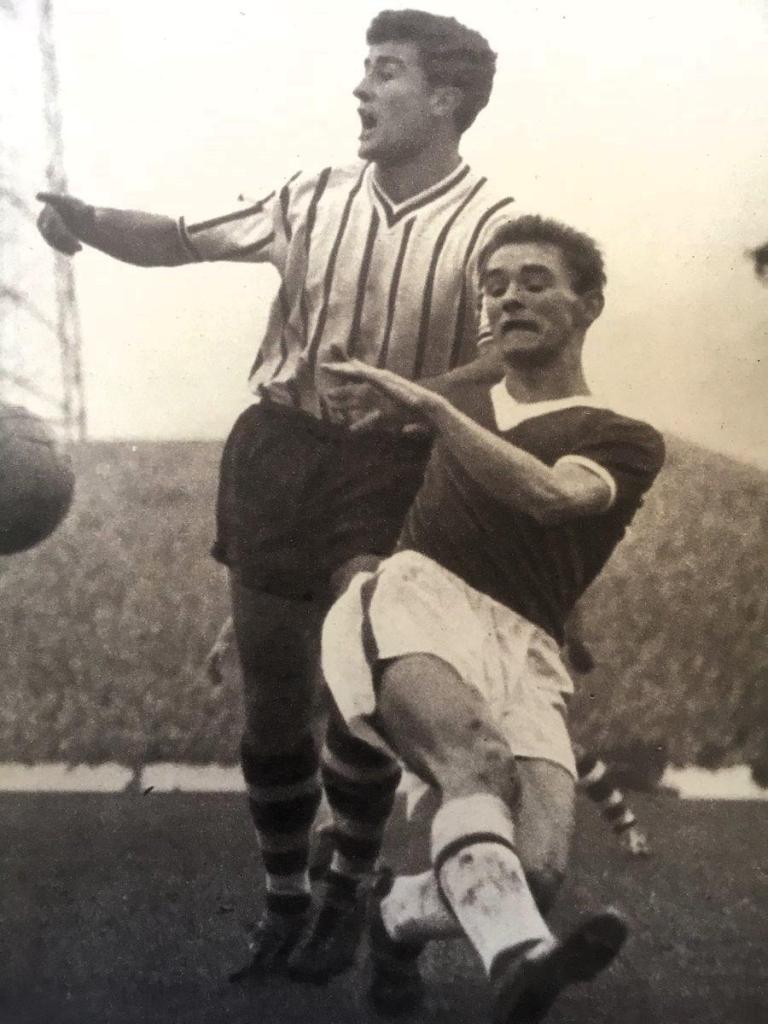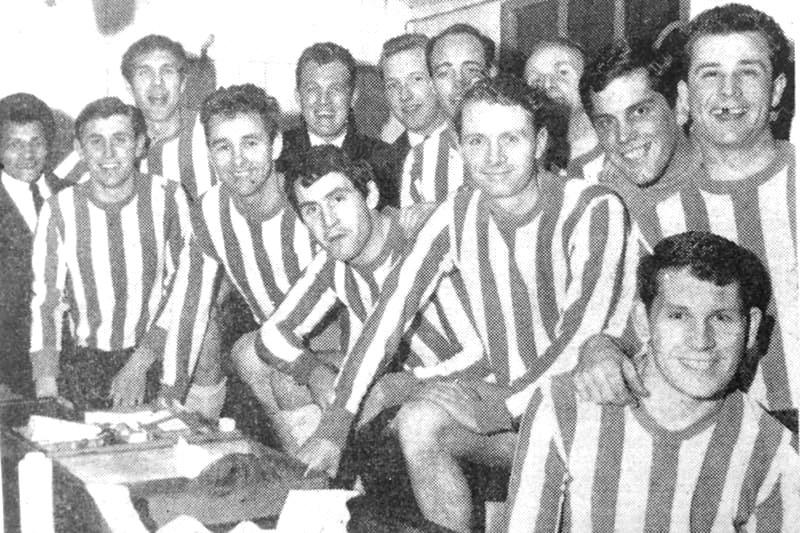
Keeping it young: Derek Forster
Barely a week after the death of “King” Charlie Hurley, we learn of the passing of two other Sunderland favourites – Dickie Rooks, for several seasons Charlie’s understudy, and Derek Forster who for almost 60 years was the youngest person to play top-flight football until beaten by four days by Ethan Nwaneri of Arsenal.
Derek’s name had cropped up in my Northern Echo column in 2010. I rang to invite him to talk for the ten thousandth time about the events of August 22 1964 – he just 15 years and 184 days old when deputising in goal for broken arm victim Jimmy Montgomery against Leicester City – only to be told that, three years earlier, Derek had lost his left eye to cancer.
“It changes your whole life” he said. “You jump off the settee and tell yourself to get on with it. It makes you realise that it doesn’t matter how hard you train or how careful you are about what you eat, it’s someone else who’s calling the shots.
“I’ve changed a lot, if that tumour had spread I was a goner. Now every day is a Sunday.”
He was a Newcastle lad, promising centre forward and St James’ Park regular, summoned for trials with the city’s under-11s. “One of the goalies didn’t turn up and they asked me to play there. That’s how much they thought of me as a centre forward and I’d honestly never played in goal in my life, not even in the back street. After that I never played anywhere else.”
He appeared nine times for England schools in a squad that included Trevor Brooking, Colin Suggett and Colin Todd, signed for Sunderland in the summer of 1964 alongside fellow schoolboys Dennis Tueart and Paddy Lowery.
The Leicester game ended 3-3, George Mulhall scoring twice for Sunderland and Nick Sharkey the third. “The youngster had the agility of a panther” said the Echo -a view with which City goalkeeper Gordon Banks agreed.
Though he played in the next few games, Derek made just 18 first team appearances in eight seasons, had only nine starts after moving to Charlton and three after following Brian Clough to Brighton.
He retired, got a job with the city council’s leisure department, played happily in the Over 40s League. “Life’s great” said Derek, “after what hapened you just make the most of every day.” He died yesterday, aged 75.
*Another Roker Park understudy, Dickie Rooks made 34 appearances in eight years before moving to Middlesbrough, scoring 14 in 136 and then heading to Bristol City.
He had a Northern League spell as player/manager at Willington and assistant manager under Ken Houlahan at Esh Winning. “The only trouble with Dickie was that he wanted to play every game and his knees were shot” recalled Ken at his 65th birthday party a few years back. “I had to tell him in the end.”
After Willington, Dickie also managed Scunthorpe United and, perhaps more exocitcally, Zanzibar. He was 83.

*Blog reader John Briggs, who kindly marked my card about Forster and Rooks, had also followed up news of Charlie Hurley’s death by sending the black-and-white image above of Hurley tussling with Brian Clough.
The game was at Ayresome Park,. Cloughie in Boro red – but, wonders John, what colours were Sunderland wearing. Anyone know?
John also recalls Cloughy’s response when subsequently asked why he’d moved from Middlesbrough to a local rival – “so I don’t have to play against Charlie Hurley again.” Did he ever score against him?

*After leaving Sunderland, Ambrose Fogarty – whom we’d heard speak alongside Charlie Hurley at a Brandon United dinner in 1989 – had three years at Hartlepool under Clough and in 1967 was awarded a testimonial, not by Sunderland but by Hartlepool.
Why, John Briggs wonders.
The opponents weren’t an official Sunderland XI but a Charlie Hurley Select, with the King as skipper. Why again, asks John.
The pic above is of the Pools team – including Hurley and Fogarty and, by the look of it, the late great Kenny Simpkins second right at the back.
*Colin Randall, long the man behind the skilfully crafted Salut! Sunderland website, recalls Charlie Hurley visiting Old Shildon Workmen’s Club for a charity event in 1968.
“My exalted station as son of the club secretary meant that Charlie was at my table or, rather, I was at his.”
As ever, Charlie was agreeable and affable, the occasion recalled many years later on the website when he was acknowledged as Sunderland’s player of the century – “the 19th century.”
In the fullness of time it was corrected.